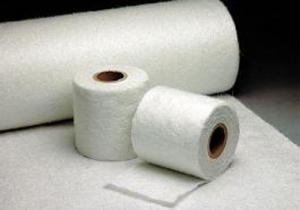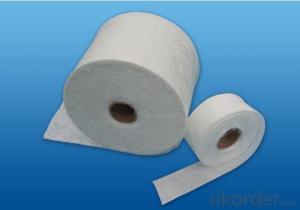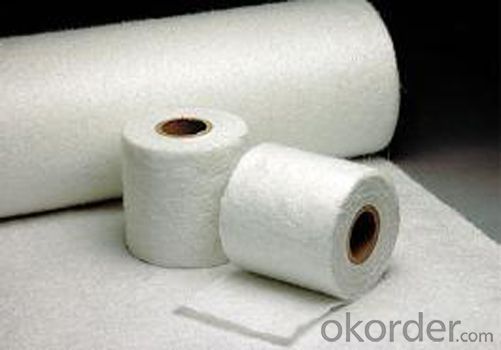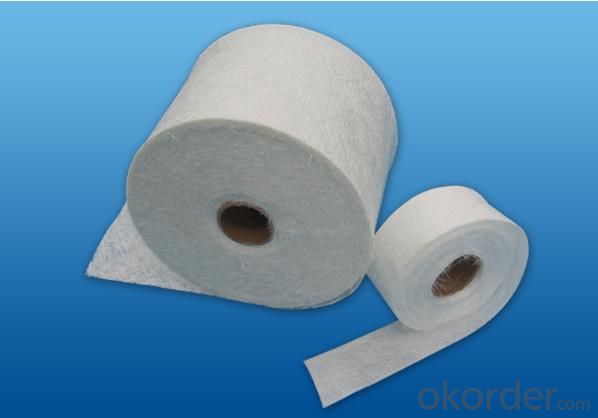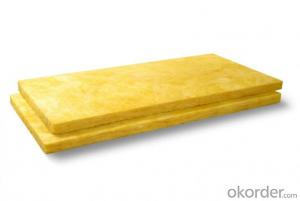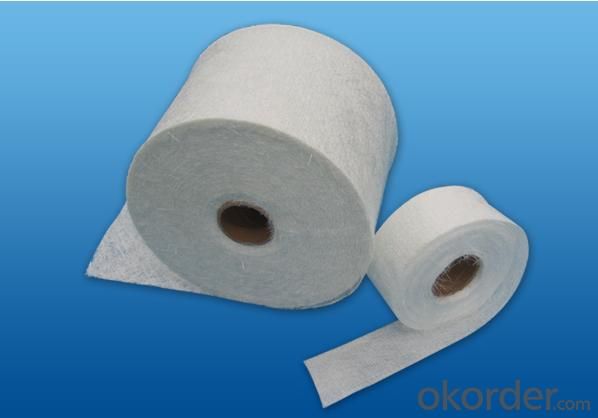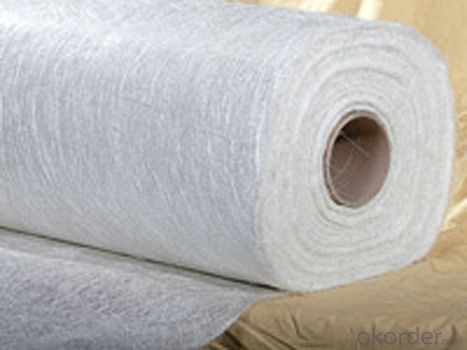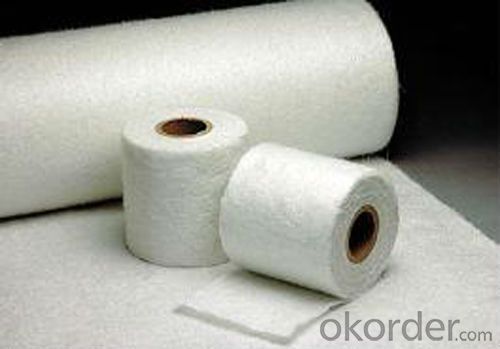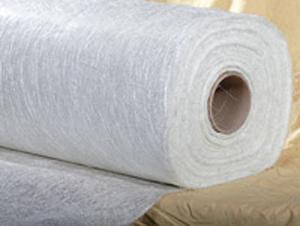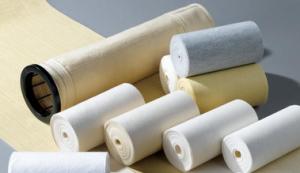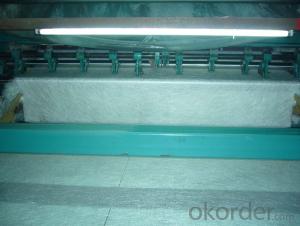Fiberglass Mat Tissue - Fiberglass Stitched Mat 250g 150~2600mm
- Loading Port:
- Shanghai
- Payment Terms:
- TT or LC
- Min Order Qty:
- 5000 m²
- Supply Capability:
- 200000 m²/month
OKorder Service Pledge
OKorder Financial Service
You Might Also Like
Description & application | ||||||||||||||||||||||||
◎ The stitched mat is made of chopped strand which randomly dispersed and be stitched together by polyester thread. The width is available from 150-2400mm.Density of mat generally is 300-600g/m2.
| ||||||||||||||||||||||||
| ||||||||||||||||||||||||
◎ Uniform thickness, good wet tensile strength retention. | ||||||||||||||||||||||||
| ||||||||||||||||||||||||
| ||||||||||||||||||||||||
| ||||||||||||||||||||||||
Each roll is wrapped by PE film and then packed into carton. Stacking in bulk or palletized is available, the pallet shall be no higher than 2 layers. |
FAQ
1) which kind of glass fiber sample and materials can you provide?
We can provide the glass fiber and glass fiber down stream products samples of E glass, C glass, ECR glass, High alkali glass. The products includes single end roving, assembled roving for different applications( Piping, SMC, panel, winding mill plate) , chop strand for BMC, engineering plastic (PA, PPA, PPT, POM, etc), chop strand mat (from 100gsm-900gsm) for automobile and water tank, etc, woven roving (270gsm-800gsm), surface tissue (25-50gsm), multi-axial fabric of different unit weight.
2) Can you provide glass fiber composite material?
We can provide GFRP profile such as grating, T beam, U beam and other assembles pieces such as GFRP triangle frame, dust bin, fireplace, etc
3) How much sample can you provide and who will bear the sample cost?
We can provide the glass fiber samples not more than 1kg free of change. However, the courier cost must be born by the customer. As to the glass fiber composite materials, we can provide the piece not more than 1kg free of change ( with the existing module). However, the courier cost must be born by the customer. If we need to make a new model, this excludes.
4) How can you guarantee the quality?
We only provide the materials that have been approved by many customers and little claim or no claim on it. We have signed the obligation contract with the manufacturer. If the few quality issue happened, we can work with the manufacturer to solve it and customer’s benefit can be guaranteed.
5) Which delivery term will you usually offer?
- Q: Is fiberglass mat tissue resistant to mold growth?
- Yes, fiberglass mat tissue is resistant to mold growth.
- Q: How does fiberglass mat tissue perform in terms of moisture absorption?
- Fiberglass mat tissue performs exceptionally well in terms of moisture absorption. Due to its composition of fine fibers, it has a high surface area which enables it to quickly absorb moisture. Additionally, fiberglass mat tissue is hydrophobic, meaning it repels water and does not retain moisture for extended periods. This characteristic makes it an ideal material for applications where moisture resistance is crucial, such as in the construction of waterproofing membranes or in the manufacturing of boats and water tanks. Overall, fiberglass mat tissue demonstrates excellent performance in preventing moisture absorption and maintaining its structural integrity even in wet environments.
- Q: Can fiberglass mat tissue be used for corrosion-resistant coatings?
- Yes, fiberglass mat tissue can be used for corrosion-resistant coatings. Fiberglass mat tissue is a non-woven fabric made from fine fiberglass strands bonded together with a binder. It is commonly used as a reinforcement material in composite applications due to its high strength and corrosion resistance properties. When used in corrosion-resistant coatings, fiberglass mat tissue acts as a barrier between the substrate and the corrosive environment. It provides excellent resistance to chemicals, moisture, and other corrosive substances, protecting the underlying surface from degradation. Additionally, fiberglass mat tissue can be impregnated with various resin systems that enhance its corrosion resistance properties. These resin systems can provide additional protection against specific corrosive agents or environments, making the coating even more effective. Furthermore, the flexibility and moldability of fiberglass mat tissue allow it to conform to complex shapes and surfaces, ensuring complete coverage and protection against corrosion. Overall, fiberglass mat tissue is a reliable and effective material for corrosion-resistant coatings. Its high strength, corrosion resistance, and compatibility with various resin systems make it a suitable choice for protecting surfaces in corrosive environments.
- Q: Is fiberglass mat tissue resistant to mold and mildew?
- Yes, fiberglass mat tissue is resistant to mold and mildew due to its non-porous and moisture-resistant properties.
- Q: Can fiberglass mat tissue be used for automotive parts?
- Automotive parts can indeed utilize fiberglass mat tissue. This adaptable material offers strength, rigidity, and durability. Within the automotive industry, it finds widespread use in a range of applications including reinforcing panels, bumpers, hoods, and body parts. Its lightweight composition makes it ideal for reducing vehicle weight and enhancing fuel efficiency. Moreover, it boasts resistance against corrosion, chemicals, and extreme temperatures, rendering it a dependable choice for automotive parts. Its flexibility further enables manufacturers to easily mold and shape it, facilitating the creation of intricate designs and desired aesthetics. Considering its strength, durability, lightweight nature, and versatility, fiberglass mat tissue stands as an exceptional option for automotive parts.
- Q: Can fiberglass mat tissue be used for making electrical enclosures?
- No, fiberglass mat tissue cannot be used for making electrical enclosures. Electrical enclosures require materials that have high electrical insulation properties, such as non-conductive plastics or metals, to ensure safety and prevent electrical hazards.
- Q: Can fiberglass mat tissue be used for insulating ductwork?
- Yes, fiberglass mat tissue can be used for insulating ductwork.
- Q: Can fiberglass mat tissue be used for repairing damaged fiberglass structures?
- Yes, fiberglass mat tissue can be used for repairing damaged fiberglass structures. The mat tissue is designed to provide strength and reinforcement to the damaged area, making it an effective solution for repairing fiberglass structures.
- Q: What are the different manufacturing processes for fiberglass mat tissue?
- There are several different manufacturing processes for fiberglass mat tissue, including wet-laid process, dry-laid process, and spunbonding process. The wet-laid process involves blending fiberglass fibers with a water-based binder, forming a mat, and then drying it. The dry-laid process, on the other hand, uses air to disperse the fibers onto a moving conveyor belt, which are then bonded together using heat and pressure. The spunbonding process involves extruding molten fiberglass polymer through fine nozzles, which solidifies into continuous filaments that are then collected onto a conveyor belt to form a mat.
- Q: Can fiberglass mat tissue be used for making lightweight flooring?
- Yes, fiberglass mat tissue can be used for making lightweight flooring. It is a versatile material that offers excellent strength and durability while being lightweight, making it a suitable choice for flooring applications where weight reduction is desired.
Send your message to us
Fiberglass Mat Tissue - Fiberglass Stitched Mat 250g 150~2600mm
- Loading Port:
- Shanghai
- Payment Terms:
- TT or LC
- Min Order Qty:
- 5000 m²
- Supply Capability:
- 200000 m²/month
OKorder Service Pledge
OKorder Financial Service
Similar products
Hot products
Hot Searches
Related keywords
